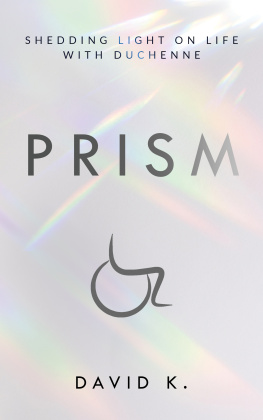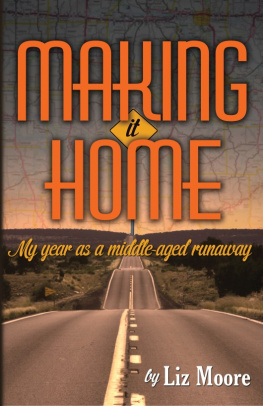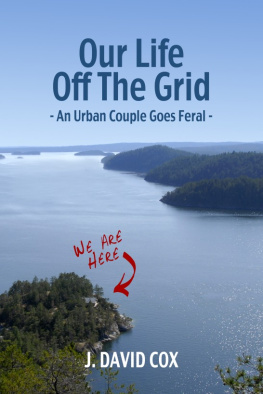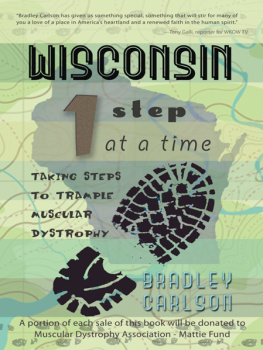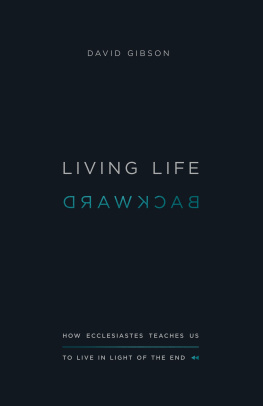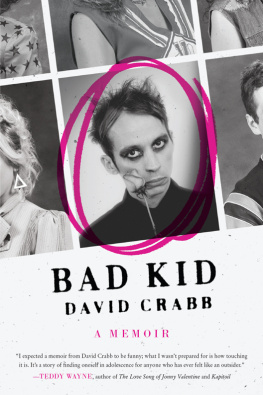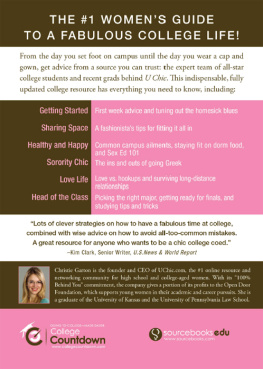Copyright 2021 Medshoppe, LLC
All rights reserved. No part of this publication may be reproduced, distributed, or transmitted in any form or by any means, including photocopying, recording, or other electronic or mechanical methods, without the prior written permission of the publisher, except in the case of brief quotations embodied in critical reviews and other noncommercial uses permitted by copyright law. For permission requests, email the publisher at
ISBN 978-1-7366463-0-4 (paperback)
ISBN 978-1-7366463-1-1 (ePub)
ISBN 978-1-7366463-2-8 (Kindle)
FOR PHILIP EDGERLEY
THE HISTORICAL CONCEPTION OF DISEASE, THE IDEA THAT DISEASES HAVE A COURSE, FROM THEIR FIRST INTIMATIONS TO THEIR HAPPY OR FATAL RESOLUTION, TELLS US NOTHING ABOUT THE INDIVIDUAL, AND HIS HISTORY; CONVEYS NOTHING OF THE PERSON, AND THE EXPERIENCE OF THE PERSON, AS HE FACES, AND STRUGGLES TO SURVIVE HIS DISEASE.
Oliver Sacks
PROLOGUE
When I was young, my mom would hang these small golden animal figurines from the kitchen window, each with a small circular prism in the center. From my usual seat at the end of the kitchen table, I could see the dozens of tiny, oblong rainbows scattered about by the figurines. When I asked my mom why these rainbows would appear, she explained, The prisms separate the light into all of its colors. This answer would not satisfy me for long.
I was soon interrogating my poor mother with even more questions: Where do the colors come from? Why cant I see them? How can they be there if I cant see them? As any good parent would do, she tried her best to nurture my curiosity by answering the questions in words I could understand.
My mom struggled to find the right words, and the best answer she could give was, The colors are always there, you just cant see them. How could that be? The rainbows were invisible?! My five-year-old head was spinning. Something I thought I knew perfectly welllight, the most ordinary of phenomenasuddenly proved to be much more richly complex. I had assumed the light I could see with the naked eye, what I could see only at the surface, was all there is. Little did I know there was far more beauty and complexity to experience; I only had to look deeper.
Just like my five-year-old-self, most people dont even realize that their understanding of disability is incomplete; they are entirely unaware of its richness hidden just slightly out of their view.
DISCLAIMER
This book is a memoir. It reflects the authors present recollections of the events described herein. All names and identifying information have been changed to protect the privacy of those mentioned, and some of the characters are composites of multiple individuals. Additionally, some events have been compressed, and the chronology has been slightly altered for narrative simplicity. Some dialogue has also been recreated.
INTRODUCTION
I was sitting in the lobby of the student union, with three of my friends, as we brainstormed ideas for our new blog. The blog, called The Fine Scholars , would detail our unique experiences as college students with severe disabilities.
We were all seniors, so we had plenty to talk about, from: our first taste of independence, to not knowing how to manage our own personal care, to our first beer.
It was really cool to look back on the previous five years, and see how much we had all changed.

The conversation went on for hours, with a big focus on the Roberts program. This is the fully inclusive, fully adaptive residence hall that had allowed us to go away to school in the first placeall the unique experiences wouldnt have happened without it.
As we were wrapping things up, my friend Ron put it all in perspective: Think about everything weve accomplished in the last five years: leaving the only caregivers we ever knew (our parents), learning how to train new caregivers, moving to a completely new place, learning to be independentwhich is orders of magnitude more difficult for someone like us (someone with a severe disability) He continued ranting for a few minutes, and finally ended with: Oh yeah , and on top of all of that, theres the small matter of earning a college degree.
All I could say was, Wow. I had to take a step back, and really think about where I was: I use a power wheelchair. I can barely move my body. I use a machine to breathe. I need assistance with all of my daily care. Yet, here I am: about to graduate from a prestigious university.
As I reflected on my accomplishments, I almost couldnt believe they were real. I had to seriously ask myself: How did I get here?

Its actually quite a tale: the story of how I got there. And, luckily for you, it is the subject of the book you are about to read.
CHAPTER ONE
A GAME CHANGER
When I came into this world, there were no physical signs of a problem, no hints that something might be wrong. I cried, I opened my eyes and looked around. My mother held me lovingly, unaware of my preordained genetic destiny: a critical error hidden in my DNA.
My parents were spared this knowledge at first. In my early years, I learned to talk, I learned to walk; I met all the important milestones. I was happy. My parents were happy. We were all playing the usual game of lifethe rules predictable, the challenges familiar. But inevitably, the game would change.

At the end of every summer, my grandparents would visit, and as grandparents do, they would spend as much time with my sister and me as possible. So naturally they wanted to go to my Little League tee-ball game.
All of the preschool-aged kids would run around in a disorganized mess and their parents called it a sport. Some bored kids would wander around the outfield while others were unsure of which direction to run on the base path. It was chaos, made cute by their aimlessness. Parents would swoon over their adorable kid in uniform, and my parents no doubt did the same. This affection likely distracted them from seeing that something was wrong.
My grandpa, who never shied away from speaking his mind and wasnt in the habit of sugar-coating anything, bluntly told my mom, Theres something wrong with him. Hes running funny. Whether this was something my parents didnt see until then, or refused to believe they were seeing, no longer mattered. They saw it now.
I was quickly taken to the family doctor, who then referred us to a specialist. He sent my parents to a neurologist who in turn recommended a muscle biopsy. and the doctor had the unfortunate job of explaining to my parents what this condition would entail.
I still dont think I will ever grasp the emotional magnitude of hearing this news, and what it did to my parents. In an instant, everything changed. Several of the potential futures my parents may have imagined for me became impossibilities. I wouldnt be a sports star, a surgeon, or an airline pilot. Would I ever get married? Would I go to college? Would I even live long enough to be college-aged? The questions were endless.
My parents found themselves in this unforgiving wilderness with no idea how to survive. They were forced to wrestle with issues like health insurance, finding various specialist doctors, and keeping up to date with the latest medical literature. They had all these terms thrown at them: preventative medicine, palliative care, quality of life, and so on. They were in over their heads.

